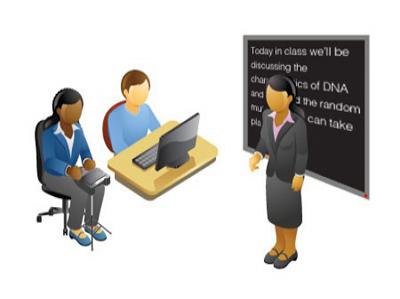
CART “Best Practices” Guide
COMMUNICATION ACCESS REALTIME TRANSLATION (C.A.R.T.) IN LEGAL SETTINGS
In July 2009, the Florida Court Reporters Association, through its CART Committee, in conjunction with the Florida Coordinating Council for the Deaf and Hard of Hearing, compiled a “CART Best Practices” package to assist ADA coordinators, court administrators, court reporters and their managers, jury coordinators, judges, attorneys and the public on ensuring equal access and effective communication for a person who is deaf or hard of hearing and is not able to use a sign language interpreter. This information will be helpful to you whether the person with hearing loss is a litigant, a juror, a judge, an attorney, or an observer.
This CART Best Practices information is being distributed to the legal community and the Florida State Court System by the Florida Court Reporters Association.
Many times the consumers that benefit from Communication Access Realtime Translation (CART) will request “captioning” or “realtime captioning” or possibly a “transcriptionist” or “note-taker.” Please be aware that these terms are often used interchangeably with “CART services.”
As part of this “CART Best Practices” package, you will find the following items:
FCRA brochure - “Legal System Accessibility in Florida for Persons with Hearing Loss – CART
(to access the brochure in PDF format, click here)
Communication Access Realtime Translation (CART) in the Courtroom: Model Guidelines, originally produced as a result of a joint project by the American Judges Foundation and the National Court Reporters Foundation.
(to access the document in PDF format, click here)
We hope you find this information helpful, and if you have any questions after reviewing the above items, please contact the Florida Court Reporters Association for more information.
|